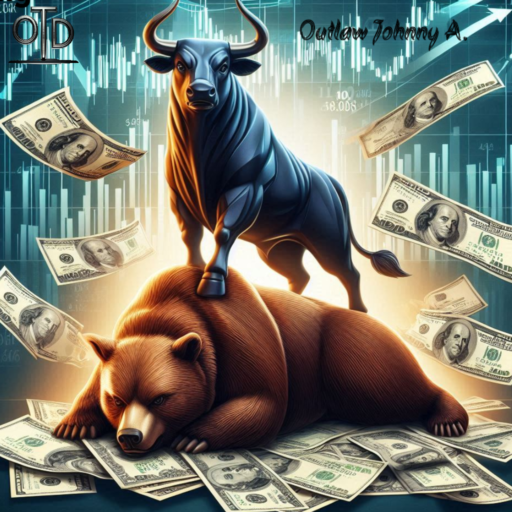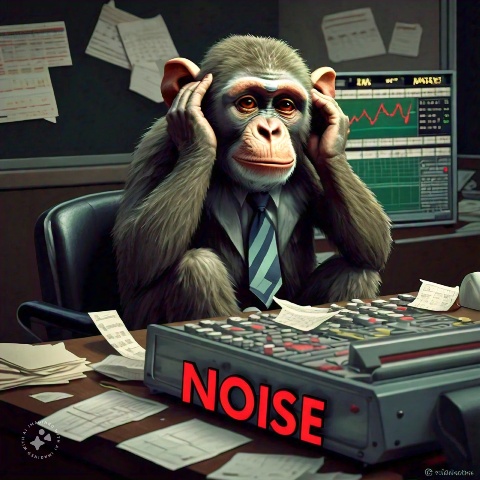All the markets we follow took it on at chin last week, as you’ll notice by the charts below. The S&P 500 was down 108 points or 1.85%; the Dow Jones Industrials was down 385 points, or .84% the Small Cap Russell 2000 was down 27 points or 1.2%, and the NASDAQ Comp was down 393 or 2.11%.
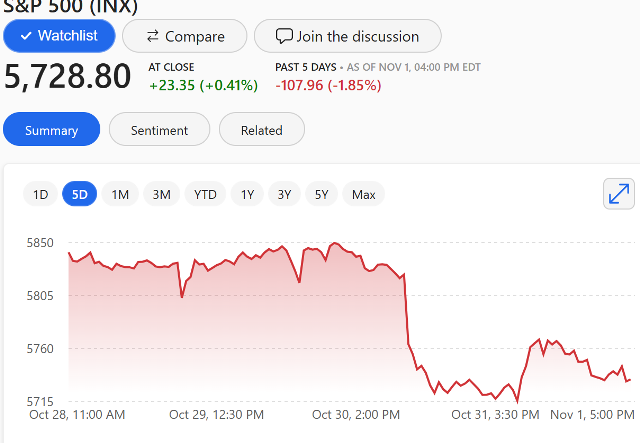
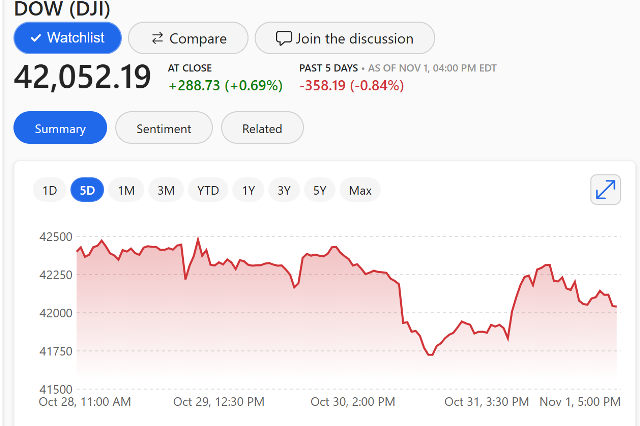
This is all due to the volatility of the election that’s coming on Tuesday. If there is not a clear winner on Tuesday, expect the volatility to continue until it looks like there is a clear winner.
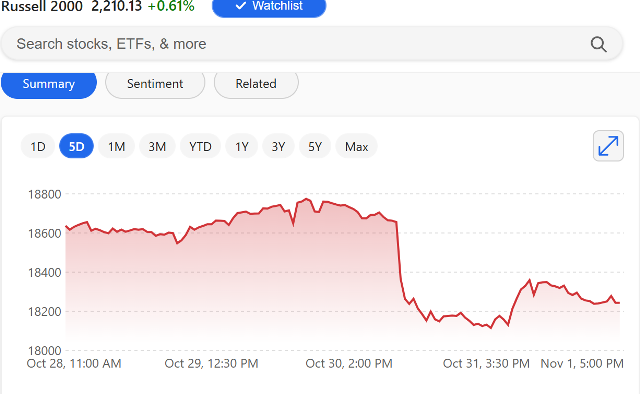
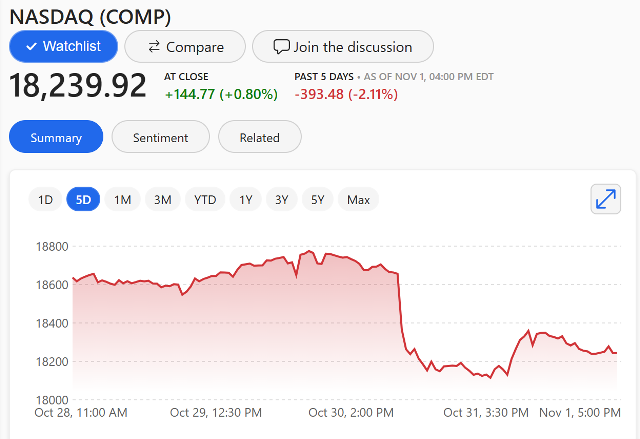
Personally, I’m getting really tired of all the noise from the pundits. Friday’s jobs report gives little indication of how the economy is truly performing. At least 40,000 of the reported jobs were a result of the Boeing strike, which had a major effect on the data. Additionally, we need to consider the impact of two recent hurricanes. We will know more about the hurricane effects in about two weeks when the geographic data is released. So, please don’t read too much into the report or what you hear from the pundits. While the report may have been slightly soft, it aligns with the “Goldilocks” scenario of a soft landing, exactly what the Federal Reserve is hoping for.
What you’re likely hearing and reading is designed to scare you. That’s how news organizations attract attention—by stirring fear, not informing you on how to interpret the data. Remember, fear sells. Sad, but true.
The Federal Reserve
It’s often appalling to me to listen to pundits and read commentary on the Federal Reserve, particularly debates on whether it should lower interest rates. With a background in business and economics, I understand how this works. Some pundits argue that lowering rates now will lead to inflation because the economy is strong.
Yes, the economy is doing well, but it is also slowing down. Raising and lowering interest rates have delayed effects. The rate cuts the Federal Reserve is implementing now won’t have a noticeable impact until June or July of next year.
I believe the Federal Reserve will cut interest rates on Tuesday. I hope the Federal Reserve’s statement does not signal a pause after this rate cut, as that would not be favorable for the stock market. If the Fed lowers rates again in December, there’s a strong possibility it may pause sometime in early 2025.
Make no mistake, we might see a temporary uptick in inflation in the near term, especially if gasoline prices rise again—REMEMBER I SAID THAT! Higher gasoline prices often spill over to other parts of the economy due to increased transportation costs. Watch service-sector pricing closely next year, especially in healthcare and car insurance. Last year, car insurance premiums rose on average by 26%, and health insurance increased by 7%. I expect homeowners’ insurance to spike significantly due to the hurricanes this year, as insurance companies pass on the costs to homeowners.
Bottom line
Expect an inflationary report next year, but remember, this is not consumption-based inflation. It is service-based inflation caused by a natural disaster, and there is a big difference. Consumption-based inflation can ripple through the entire economy, as we saw with pandemic-related inflation. That phase is over, but it will take years to reach the 2% inflation target set by the Federal Reserve.
